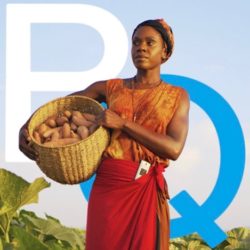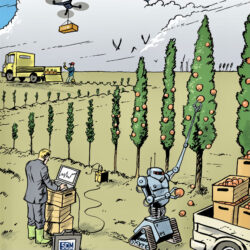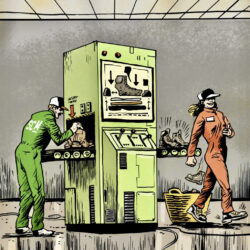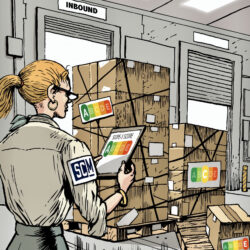Blockchain platform for global rice trade
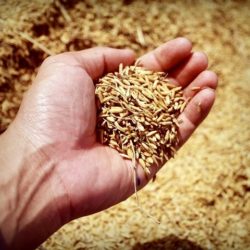
Fujitsu and Rice Exchange (Ricex) have collaborated to launch the first-ever global blockchain-based rice trading platform. It will increase transparency, efficiency and traceability when trading rice, which is the world’s largest agricultural commodity. It will also create new levels of trust in the US$450 billion global rice market.
Ricex is the first digital platform designed for the buying and selling of rice. It digitalizes rice trading based on distributed ledger technology (DLT). The online blockchain platform makes it easy for buyers, sellers and service providers to find one another in order to conduct trades and arrange insurance, shipping, inspection and settlement. Seamless integration and verifiable data are guaranteed.
“The Rice Exchange platform brings transparency, efficiency and security to the global rice trade,” says Stephen Edkins, CEO of Ricex. He explains that the distributed ledger technology from Ricex’s partner, Fujitsu, has helped to remove the many barriers that have prevented transparent, low-risk trading in rice. “It allows trade buyers to purchase this vital food staple with full confidence that they are getting a quality product at a fair price,” continues Edkins.
Complex market
The rice trade is an opaque and complex market that is still largely paper-based. Certification requirements for rice imports vary by region and documents must be checked and matched manually, which is not only costly but also prone to human error. Documents must also travel globally with the goods, with the risk of delays due to incorrect or missing documentation. The Rice Exchange platform simplifies documentation compliance, leading to lower transaction costs and back-end operations, and providing full transparency.
According to the project partners, the DLT platform injects new levels of trust and efficiency into the highly fragmented international rice trade by creating verified, immutable data for all stakeholders. The use of a distributed ledger removes friction and delays in the supply chain. It also ensures security and transparency in international rice trades by allowing all stakeholders to see the same verifiable data in real time.
Sustainably grown
For example, the Ricex platform allows buyers to search for rice that has been certified as ‘sustainably grown’. This gives buyers certainty about the provenance of the rice and in turn allows producers to charge a premium for their product. “Sustainability, track & trace and provenance are at the heart of the Rice Exchange, which is another powerful example of real-world use cases for blockchain,” comments Frederik De Breuck, Head of the Fujitsu Blockchain Innovation Center in Brussels.



